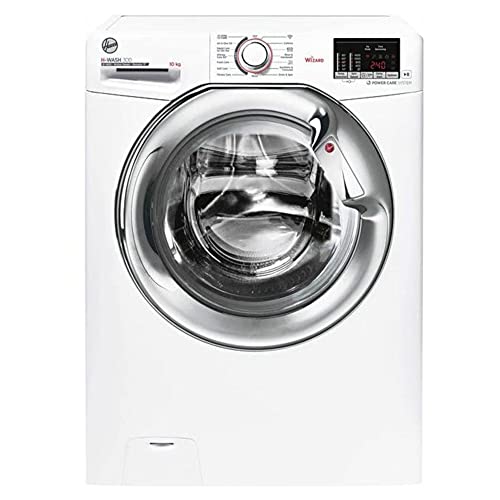How To Beat Your Boss On 10kg Front Loader
Why Buy a 10kg Front Loader?  simply click the next document is ideal for large laundry loads, with plenty of space for large wash cycles as well as 13 wash programs that include handwash. With smart tech and advanced features, it's the perfect partner for your home laundry. Front loaders are generally slower to clean, do not come in larger capacities and are susceptible to mould or mildew. However, they are much more efficient in water and energy than top loaders. Energy The primary energy cost in the front loader with 10kg of weight is electricity to heat water to operating temperatures, and to run the motor. These costs can be offset with less energy usage in operation when as compared to top-loaders, with less power in the agitation process and during spin, as well as less water. Certain machines have a low-water cycle that uses less water than the cotton cycle. This can save energy and water. In general, front-loading washers use less soap than top-loaders. The tumbling action of the drum also reduces foamy suds, and also reduces overflows, but without affecting the cleaning. The door seals and bellows of top-loaders can be more prone to wear. The mechanical agitator in top-loaders also causes significant wear and tear to clothing. It sways and drops clothes constantly, forcing them to rub against one another. The degree of abrasion can be measured by the amount of fabric that is accumulated in a dryer's lint filters, as lint largely consists of stray fibers detached from clothes during drying and washing. Many top-loaders have been designed to run at slower speeds, and could also include an “freshening cycle” to clean the mechanical gears or bellows periodically. Water Top-loading washers require an impeller or agitator to push soap and water through the clothes, which causes wear and abrasion. In contrast, front-loaders employ paddles that gently lift and drop clothes inside a drum spinning to clean, reducing wear. The rate of wear can be estimated by the amount of lint that is collected in dryer lint filters, which is mostly composed of stray threads detached from clothing during drying and washing. Since front-loaders require less water than top-loaders and are therefore less susceptible to leakage. Front-loaders require a bellows or seal to prevent water from leaking through the open door. These systems aren't required to be maintained as often as top-loaders. Furthermore, front-loaders can work with cold water or hot and a lot of them without the need for an external heating source, which makes them more energy efficient than most top-loaders. This efficiency can reduce the cost of running the same laundry load, especially in areas where detergent, water, and energy are expensive.
simply click the next document is ideal for large laundry loads, with plenty of space for large wash cycles as well as 13 wash programs that include handwash. With smart tech and advanced features, it's the perfect partner for your home laundry. Front loaders are generally slower to clean, do not come in larger capacities and are susceptible to mould or mildew. However, they are much more efficient in water and energy than top loaders. Energy The primary energy cost in the front loader with 10kg of weight is electricity to heat water to operating temperatures, and to run the motor. These costs can be offset with less energy usage in operation when as compared to top-loaders, with less power in the agitation process and during spin, as well as less water. Certain machines have a low-water cycle that uses less water than the cotton cycle. This can save energy and water. In general, front-loading washers use less soap than top-loaders. The tumbling action of the drum also reduces foamy suds, and also reduces overflows, but without affecting the cleaning. The door seals and bellows of top-loaders can be more prone to wear. The mechanical agitator in top-loaders also causes significant wear and tear to clothing. It sways and drops clothes constantly, forcing them to rub against one another. The degree of abrasion can be measured by the amount of fabric that is accumulated in a dryer's lint filters, as lint largely consists of stray fibers detached from clothes during drying and washing. Many top-loaders have been designed to run at slower speeds, and could also include an “freshening cycle” to clean the mechanical gears or bellows periodically. Water Top-loading washers require an impeller or agitator to push soap and water through the clothes, which causes wear and abrasion. In contrast, front-loaders employ paddles that gently lift and drop clothes inside a drum spinning to clean, reducing wear. The rate of wear can be estimated by the amount of lint that is collected in dryer lint filters, which is mostly composed of stray threads detached from clothing during drying and washing. Since front-loaders require less water than top-loaders and are therefore less susceptible to leakage. Front-loaders require a bellows or seal to prevent water from leaking through the open door. These systems aren't required to be maintained as often as top-loaders. Furthermore, front-loaders can work with cold water or hot and a lot of them without the need for an external heating source, which makes them more energy efficient than most top-loaders. This efficiency can reduce the cost of running the same laundry load, especially in areas where detergent, water, and energy are expensive.